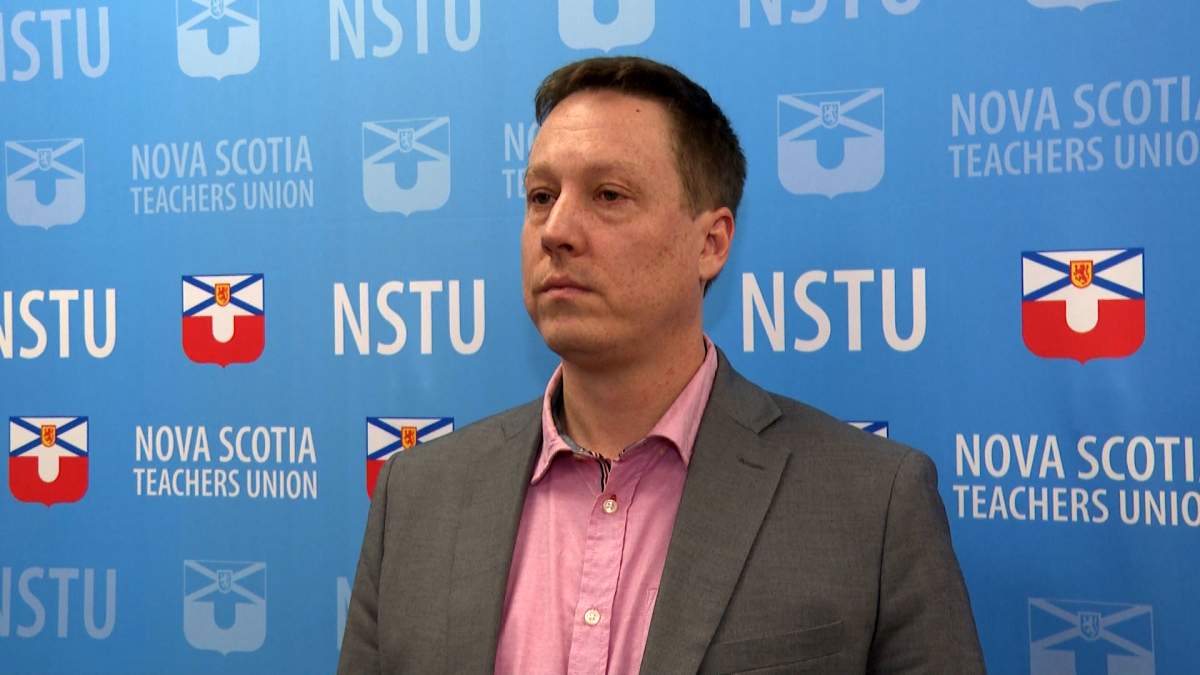Most teachers in Nova Scotia have considered quitting in the last five years due to burnout and high workloads, according to a recent survey from the Nova Scotia Teachers Union.

Between Feb. 15 and 23, more than 3,519 NSTU members completed the survey — 84 per cent of whom said they had considered leaving the profession or moving to another province or country to teach.
NSTU president Ryan Lutes said that’s a big problem.
“We have a recruitment and retention crisis, and the last thing that we need in a shortage is teachers leaving,” he said.
Burnout was the primary factor leading teachers to consider quitting, with 76 per cent of respondents listing it as a reason.
Two-thirds also cited high workloads and a lack of resources available to support students, and more than half felt they didn’t get enough support or respect from their employer.
As well, 42 per cent also considered quitting due to school violence.
Lutes said he was surprised to see such high numbers, but it “matches with what I hear from teachers.”
“The most common word I hear from teachers right now is ‘unsustainable,'” he said. “That’s because their kids aren’t getting the support they need, and therefore they’re not getting the support they need to meet the needs of their students.”
He said teachers don’t have the resources to properly support students with extra needs, such as those living in poverty, recent immigrants dealing with language barriers and children with learning disabilities.

Get daily National news
The union is calling for the province to implement a comprehensive teacher recruitment and retention strategy, and increase pay for the province’s substitute teachers who are left to fill in the gaps.
“They can’t make their ends meet on the substitute teacher wage, so an increased wage for our substitutes is something that we really feel would help entice more substitutes to get into the system, which is going to help decrease the stress on their schools,” he said.
School staff ‘committed’: minister
Education Minister Becky Druhan said Wednesday that it has been a “rough five years” for everyone, and the school system is no different.
She said all sectors are facing staffing issues, but said based on her conversations with teachers across the province, “the majority of our staff in schools are committed.”
“They’re dedicated, they’re passionate, and they want to deliver the best possible education to Nova Scotia students,” she said.
“Absolutely, there are challenges, and we’re committed to working together with our educators to meet those challenges.”
Druhan said bargaining is underway with the NSTU, and wages, including wages for substitute teachers, are part of those discussions.
She said the province has rolled out pilot projects across the province to help support math education, staff appreciation and school attendance.
The province is also hoping to graduate more education students faster with two new accelerated bachelor of education programs.
Department spokesperson Krista Higdon said work is wrapping up on its new teacher recruitment and retention strategy.
“We know Nova Scotia needs teachers and we are working with our partners on innovative solutions to train, attract and retain more teachers than ever before,” she said in a statement.
“We are working with RCEs, CSAP, NSTU, Nova Scotia universities and other partners to find ways to have new teachers graduate faster, align teacher specialties with hard-to-fill subjects, attract diverse teachers to our workforce and listen and address current teacher concerns.”
— with files from Global News’ Amber Fryday









Comments
Want to discuss? Please read our Commenting Policy first.